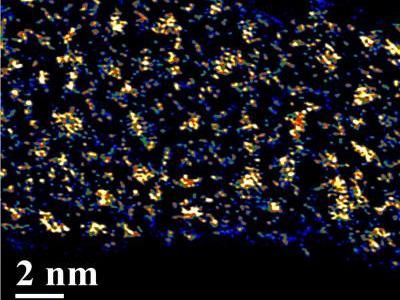Physicists precisely measure interaction between atoms and carbon surfaces
Advertisement
Physicists at the University of Washington have conducted the most precise and controlled measurements yet of the interaction between the atoms and molecules that comprise air and the type of carbon surface used in battery electrodes and air filters - key information for improving those technologies.
A team led by David Cobden, UW professor of physics, used a carbon nanotube acting as a transistor to study what happens when gas atoms come into contact with the nanotube's surface. Their findings were published in Nature Physics.
Cobden said he and co-authors found that when an atom or molecule sticks to the nanotube a tiny fraction of the charge of one electron is transferred to its surface, resulting in a measurable change in electrical resistance.
"This aspect of atoms interacting with surfaces has never been detected unambiguously before," Cobden said. "When many atoms are stuck to the miniscule tube at the same time, the measurements reveal their collective dances, including big fluctuations that occur on warming analogous to the boiling of water."
Lithium batteries involve lithium atoms sticking and transferring charges to carbon electrodes, and in activated charcoal filters, molecules stick to the carbon surface to be removed, Cobden explained.
"Various forms of carbon, including nanotubes, are considered for hydrogen or other fuel storage because they have a huge internal surface area for the fuel molecules to stick to. However, these technological situations are extremely complex and difficult to do precise, clear-cut measurements on."
This work, he said, resulted in the most precise and controlled measurements of these interactions ever made, "and will allow scientists to learn new things about the interplay of atoms and molecules with a carbon surface," important for improving technologies including batteries, electrodes and air filters.
Most read news
Organizations
Other news from the department science

Get the chemical industry in your inbox
By submitting this form you agree that LUMITOS AG will send you the newsletter(s) selected above by email. Your data will not be passed on to third parties. Your data will be stored and processed in accordance with our data protection regulations. LUMITOS may contact you by email for the purpose of advertising or market and opinion surveys. You can revoke your consent at any time without giving reasons to LUMITOS AG, Ernst-Augustin-Str. 2, 12489 Berlin, Germany or by e-mail at revoke@lumitos.com with effect for the future. In addition, each email contains a link to unsubscribe from the corresponding newsletter.




























































